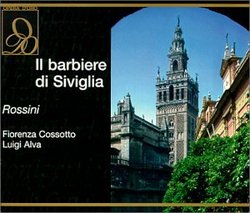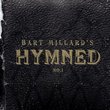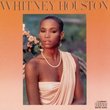| All Artists: Gioachino Rossini, Gabriele Santini, Fiorenza Cossotto, Luigi Alva, Giuseppe Bertinazzo, Sesto Bruscantini, Virgilio Carbonari, Nicolai Ghiaurov, Carlo Badioli, Carlo Forti, Stefania Malagu Title: Rossini - Il Barbiere di Siviglia / Cossotto · Alva · Ghiaurov · Bruscantini · Santini Members Wishing: 0 Total Copies: 1 Label: Opera D'oro Release Date: 9/16/1997 Genre: Classical Styles: Opera & Classical Vocal, Historical Periods, Modern, 20th, & 21st Century Number of Discs: 2 SwapaCD Credits: 2 UPC: 723723132826 |
Search - Gioachino Rossini, Gabriele Santini, Fiorenza Cossotto :: Rossini - Il Barbiere di Siviglia / Cossotto · Alva · Ghiaurov · Bruscantini · Santini
 | Gioachino Rossini, Gabriele Santini, Fiorenza Cossotto Rossini - Il Barbiere di Siviglia / Cossotto · Alva · Ghiaurov · Bruscantini · Santini Genre: Classical
Gabriele Santini leads a fun-filled performance, giving his cast plenty of space to entertain us. Sesto Bruscantini's Figaro is big-voiced and burly, but he sings well enough to please. Luigi Alva's poised, leggero Almaviv... more » ![header=[] body=[This CD is available to be requested as disc only.]](/images/attributes/disc.png?v=15401716) ![header=[] body=[This CD is available to be requested with the disc and back insert.]](/images/attributes/disc_back.png?v=15401716) ![header=[] body=[This CD is available to be requested with the disc and front insert.]](/images/attributes/disc_front.png?v=15401716) ![header=[] body=[This CD is available to be requested with the disc, front and back inserts.]](/images/attributes/disc_front_back.png?v=15401716) |
Larger Image |
CD DetailsSynopsis
Amazon.com Gabriele Santini leads a fun-filled performance, giving his cast plenty of space to entertain us. Sesto Bruscantini's Figaro is big-voiced and burly, but he sings well enough to please. Luigi Alva's poised, leggero Almaviva is correct in tone and attitude, but he lacks the ability to articulate any of Rossini's faster music. The problem lies with Fiorenza Cossotto's Rosina. Why this great Amneris and Azucena would want to play a character who is vocally half her size is a mystery. She sounds like Rosina on steroids--or, actually, Lady Macbeth. The rest of the cast is very good. --Robert Levine Similar CDs
Similarly Requested CDs
|
CD ReviewsA Cheap Barbiere 07/19/2000 (4 out of 5 stars) "The label Opera d'Oro has grown considerably in the last few years, and they have offered many live recordings, some of which have historical significance. This is not one of them, but is nevertheless an enjoyable version. The cast includes Luigi Alva, who has sang the Count on four studio recordings (most notably with Callas), and Sesto Bruscantini, who recorded the role with de los Angeles and Gui. Both of them have nice voices, and reasonable flexibility. The raison d'etre of this production was most likely Fiorenza Cossotto's Rosina, a role she never recorded in studio, and the one she didn't sing very often on stage, as far as I am aware of. She has a huge voice, more easily associated with Azucena or Amneris, but I was rather surprised at her ability to sing coloratura. Her characterization and ornamentation are rather understated. The sound is listenable, but not as clear as it could be. So, if you want a cheap and nicely performed Barbiere, go for it, but if you are looking for a more provoking or better sung version, I'd stick with Callas/Galliera (EMI) of Berganza/Varviso (London/Decca). Both are studio recordings."
|

 Track Listings (19) - Disc #1
Track Listings (19) - Disc #1







